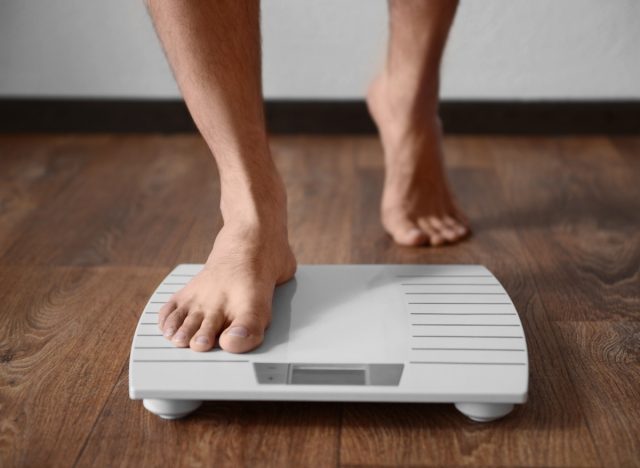For many of us, the allure of a glass of wine with dinner after a long day or a pint of beer at happy hour has been rationalized by alcohol’s—wine, specifically—purported health benefits. Headline after headline in the news has long heralded the new studies that support alcohol’s positive impact on countless health outcomes—from heart health to longevity—however, the reality is that the link between alcohol and your well-being is quite complex.
Regardless of possible health benefits, the reality is that alcohol is a toxic and psychoactive substance. According to the World Health Organization, it contributes to three million deaths globally each year. So is it true that something with such severe side effects can actually be good for us? The evidence is stacking up to say no.
A comprehensive 2023 review article published in JAMA, which analyzed results from 107 cohort studies, found that consuming moderate amounts of alcohol does not, in fact, protect against mortality. Furthermore, the CDC states that daily consumption of as little as one drink a day for women and two drinks a day for men can increase the risk of developing cancer.
As evidenced by these recent reviews, the harms of daily alcohol consumption may outweigh the potential benefits in the long run. But what effects can you expect to experience if you have a nightcap (or two) every day? Read on to discover the little-known effects of what happens to your body when you drink alcohol every day. And for more, don’t miss 6 Incredible Effects Of Giving Up Alcohol for One Month.
Your sleep quality will decrease


A glass of wine may help you unwind and bring on sleepiness but how does it affect overall sleep? Alcohol is a depressant and has a sedative-like effect, which can help individuals fall asleep; however, an individual will likely experience poor-quality sleep. Alcohol affects sleep quality by interrupting the body’s REM cycle and interfering with respiration. A 2020 study published in the journal Public Health Nutrition found that individuals with higher alcohol consumption had increased odds of experiencing short sleep duration, snoring, and obstructive sleep apnea.
Your brain volume may shrink
Who wants to think about the brain when having an evening nightcap? For many, pouring a glass of alcohol is a way to “turn off the brain” and relax after a busy day. Unfortunately, when it comes to brain health, the brain is negatively affected by daily alcohol consumption. A 2022 research study published in the journal Nature Communications found that consuming just one alcoholic drink daily could be associated with changes in gray and white matter volume in the brain. Individuals who consumed more alcohol daily showed even larger decreases in brain matter volume.
You may experience a disruption in mood
Many reach for a cocktail or glass of wine to cope with a bad mood but it turns out that alcohol may be contributing to a vicious cycle of moodiness. Alcohol is a depressant and it has a direct effect on the balance of neurotransmitters (serotonin, GABA, dopamine) in the brain. After a drink, you may feel more relaxed and confident but as soon as the alcohol is metabolized, the chemical changes that have occurred after the intake of alcohol could lead to irritability, anxiety, depression, or anger. Couple those feelings with a slight hangover and you are setting yourself up for the need to have another drink the following day to “help” with the negative feelings.
Your oral health may suffer
Alcohol is a diuretic, which means it moves water and salt out of the body and can cause dehydration. That feeling of desperately needing water to help with a dry mouth after waking up from a night of drinking is due to dehydration. In addition to being uncomfortable, dry mouth can lead to inflammation of the mouth and reduced salivary flow, which contributes to tooth decay.
READ RELATED: The Role Of Fat : How much Fat is too much Fat for Human Body
You could be more susceptible to weight gain


Alcohol affects weight in a multitude of ways. As noted above, alcohol can have a negative effect on sleep and sleep is critical for weight management. A 2017 review paper published in the European Journal of Clinical Nutrition found that partial sleep deprivation was associated with increased caloric intake (385 extra calories per day).
Another way alcohol affects weight is by its caloric content. Alcohol is the second most caloric macronutrient (1 gram of alcohol equals seven calories ) and contains zero nutrition for the body. Most glasses of wine contain roughly 120 calories and this on top of a regular day of calorie consumption can lead to weight gain.
A final way alcohol affects weight is by increasing an individual’s propensity towards more caloric foods.
You’ll be more likely to get sick
A robust immune system is essential for fighting off illness and immunity is negatively affected by chronic alcohol consumption. A large portion of the immune system is housed in the gastrointestinal tract and the GI tract is alcohol’s first point of contact after consumption. Alcohol directly impacts the lining of the GI tract and the damage that is done from frequent alcohol consumption can lead to leaky gut which triggers inflammation throughout the body. Alcohol also affects the immune system but altering the positive bacteria in the gut and damaging immune cells in the GI tract.
Your gut health can be negatively affected
Having a healthy gut is an important part of overall health and well-being. A healthy gut keeps mood stable, hormones regulated, immunity intact, and inflammation low. Alcohol can wreak havoc on gut health by damaging the lining of the gastrointestinal tract and killing off beneficial gut bacteria. The combination of a damaged GI lining and dysbiosis (when the ratio of beneficial to negative gut bacteria tilts towards negative bacteria) can lead to digestive problems, poor mood, skin issues, and weakened immunity.
At the end of the day, it is important to find other ways to cope with stress and relax outside of alcohol consumption. If it is difficult to go more than one day without a drink, consider reaching out for support.
Sydney Greene, MS, RD










